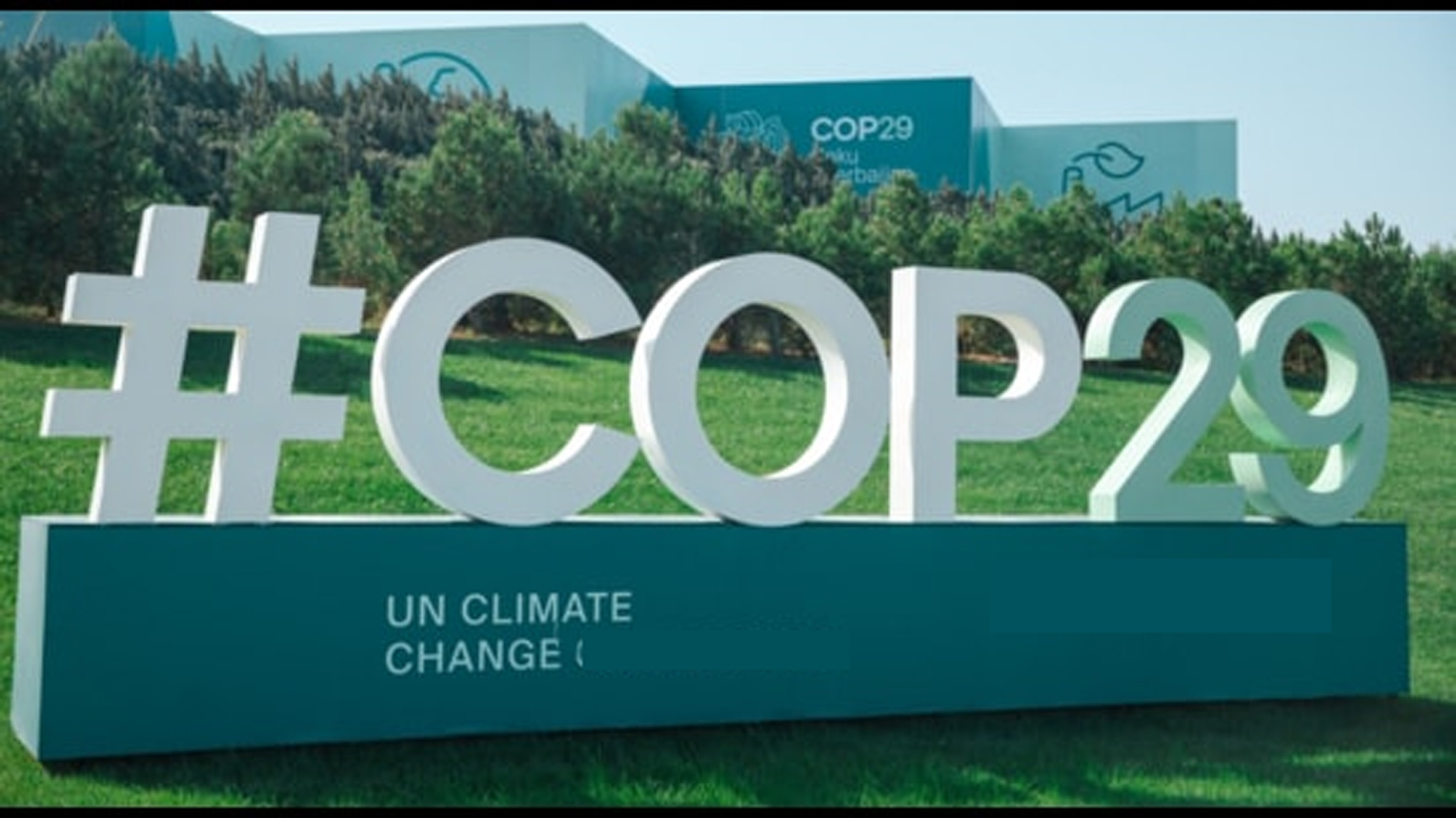By Dr. Gyan Pathak
The UN Climate Conference (COP29), the largest climate summit globally, convened nearly 200 nations in Baku, Azerbaijan, concluding with a challenging agreement on climate finance. However, significant uncertainties regarding climate crisis mitigation persist. The initiative to increase financial aid to developing nations from $100 billion to $300 billion per year by 2035, with a target of raising $1.3 trillion from both public and private funding sources, will prove ineffective if crucial decisions about contributions remain unresolved and funds are not disbursed timely.
This question is critically significant, particularly given the previous target of $100 billion established in 2009, which was not fully met until 2022—13 years later. Proceeding on a business-as-usual trajectory could incur substantial costs. Current trends in climate funding and adaptation indicate a challenging path ahead.
Early in the conference, a deal was reached to advance a global carbon market, under UN governance, aimed at funding projects that reduce greenhouse gas emissions. This market will enable carbon credit trading, motivating nations to lower emissions and invest in sustainable projects. Additional progress made at COP29 included extending a program focused on gender and climate change, along with an agreement to assist the least developed nations in implementing their national adaptation plans.
Despite this, the funding consensus for $300 billion annually by 2035 under the New Collective Quantified Goal (NCQG) left many negotiators from developing countries and island states—those most severely affected by the climate crisis—frustrated. Many among these nations face existential threats. Civil society organizations and representatives from developing countries expressed deep disappointment regarding the funding commitments from wealthier nations. Several states even boycotted the final negotiation meeting, which extended beyond the scheduled conclusion of the summit.
Developing countries, which sought over $1 trillion in support, labeled the agreement as “insulting,” arguing it fell short of providing the essential resources needed to effectively address the multifaceted challenges posed by the climate crisis.
In response to the results, UN Secretary-General António Guterres remarked, “I had hoped for a more ambitious outcome—on both finance and mitigation—to tackle the significant challenge ahead. However, this agreement establishes a foundation for further progress,” adding, “It must be fully honored and delivered on time. Commitments need to swiftly translate into cash. All nations must cooperate to meet the high end of this new objective.” For many vulnerable nations, it offers a flicker of hope—provided that commitments lead to prompt action, he stressed.
Highlighting the progress represented by the outcome, UN Climate Change Executive Secretary Simon Stiell stated, “The journey has been challenging, but we have achieved a deal. This new financial target serves as an insurance policy for humanity in light of the escalating climate impacts affecting all countries. But like any insurance policy, it only functions if premiums are paid fully and punctually.” He further emphasized that the world has much work ahead. “Thus, this is not the moment for complacency; we need to refocus our efforts as we approach Belem,” the site for COP30 next year.
The representative from India strongly criticized the new goal, labeling it as “a meager sum” and insisting, “We expect a significantly higher ambition from developed nations, and the agreed amount does not instill confidence that we can overcome the profound challenges posed by climate change.”
A representative from a coalition of small island nations asserted, “After COP29 concludes, we cannot simply sail off into the sunset. We are literally sinking,” emphasizing that the conference’s outcomes underscored the drastically different circumstances faced by vulnerable nations compared to developed countries.
A vital issue going forward will be determining respective contributions. The list of wealthier nations responsible, compiled in 2002, is now outdated. Countries such as China and India have rapidly evolved and elevated their emissions. Questions also arise regarding fund distribution and accountability. Some developed nations argue that these emerging economies should also bear financial responsibilities.
The next significant event in the global climate arena will be the Fourth International Conference on Financing for Development, scheduled for June 2025 in Seville, Spain. This gathering will concentrate on mobilizing financial resources to achieve the Sustainable Development Goals, with a focus on climate finance.
Another critical point is the Nationally Determined Contributions, which every nation must submit anew by February 2025. The current commitments under NDCs fall short of effectively tackling the ongoing climate crisis. Additionally, many nations are failing to meet these commitments, resulting in a substantial gap between actions taken and what is necessary to limit temperature rise to 1.5 degrees Celsius by 2030, as per the Paris Agreement of 2015.
Several unresolved issues are expected to carry over to COP30, set for Belem, Brazil, in November 2025. This event will be critical for countries to enhance their national climate action plans and expedite the transition to a low-carbon economy. The conference will place a significant emphasis on reducing greenhouse gas emissions and promoting clean energy technologies, according to the UN Framework Convention on Climate Change (UNCCC). (IPA Service)


Leave a Reply